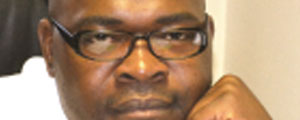
The role of the Zimbabweans in the Diaspora in shaping our development has been under discussion for a long time.
Develop Me with Tapiwa Gomo
There is awareness that there is a large number of Zimbabweans who are scattered across different locations in the world.
However, most of the discussions have largely been on the sidelines of mainstream politics, albeit, small groups scattered across different cities in the West affiliated to the main political parties in Harare.
Most of these have not done anything more than arrange or attend regular meetings and mobilising Zimbabweans to join their parties, including being instruments of political infiltration.
A lot of resources have gone into these activities, even though it is known that Diasporas are not allowed to vote.
In a normal world and where things are organised, you would expect the different branches of different parties to engage with key political players such as donor capitals, embassies and the business communities in their countries of residence in pursuit of national goals. But, alas it is all about job seeking.
As a consequence the government has taken advantage of this lack of ambition and organisation to lock the diaspora discussions in the narrative of remittances and how their money is vital in sprucing up corrupt behaviour under the guise of supporting families back home and participating in the economy.
- Chamisa under fire over US$120K donation
- Mavhunga puts DeMbare into Chibuku quarterfinals
- Pension funds bet on Cabora Bassa oilfields
- Councils defy govt fire tender directive
Keep Reading
To demonstrate the Diaspora’s imprudence, while presenting the budget for 2014, Finance Minister Patrick Chinamasa, acknowledged that Zimbabwe has a large part of its population living in the Diaspora which contributed roughly $1,6 billion in remittances between January and November 2013.
This simply means the Diaspora is expected to contribute more than 38% towards the national financial requirement and yet the Diaspora is denied their right to vote.
Forget what percentage diamonds and other minerals are expected to contribute. Based on these figures, the Minister announced that he has plans to entice more funds from the Zimbabwean diaspora. This is the same Minister whose ministry and his party had fought hard to deny Diasporans their right to vote and yet it seems it is well in the Diaspora’s soul.
Calls for the Diaspora to play a part in saving the country sound very relevant, and yet these calls die a natural death unless they are supported by strong organisational structures, which currently do not exist on its own with the facilitation off the government.
In addition, our diaspora is disenfranchised and lacks serious organisation.
This is so because, ours is a diaspora that is largely configured by poverty, destitution and desperation, factors which deprive the diaspora a sense of empowerment to go beyond employment seeking and meetings in the different cities for a cup of coffee and exchange cards.
Take for instance the stories we read about deportations in the UK, the possible deportation of a quarter of a million Zimbabweans in South Africa, the fraud stories from the US and Canada and the treatment of Zimbabweans in Botswana. None of these points to an empowered lot that can politically mobilise and influence change in Zimbabwe.
While there is a sizeable group of professionals and business people who were exported out of the country because of their expertise or looking for safe investment opportunities.
Even these too have not invested much attention to political developments in Zimbabwe. Our image as a hardworking and educated society has been diminished by the punctuation that we are not as politically wise and courageous as we show in offices in other countries. That has resulted in a huge dent in the way we are viewed outside our borders.
And Zanu PF is so much aware of the vulnerabilities of many in the Diaspora which is why they never worry about the diaspora brewing up any political surprises.
In fact, this is how the government today can safely bring back those who once fled the country,and become critical of the government, by offering them jobs at technical level and not at policy level. It is a different generation of diaspora from that of yester years which carried and advanced the aspirations of the African liberation struggles and the desire for independence.
In addition to the different economic strata, the Zimbabwean diaspora is not one social unit as some would want to portray. It should be noted that the long one stays in a foreign country, the more their thinking is likely to be influenced by the way of thinking of that country.
Bringing these together for one common cause can be another source of disagreements and possible instability. But still that does not take away the idea that the Diaspora needs to be organised to play a part in the political developments of our country.











